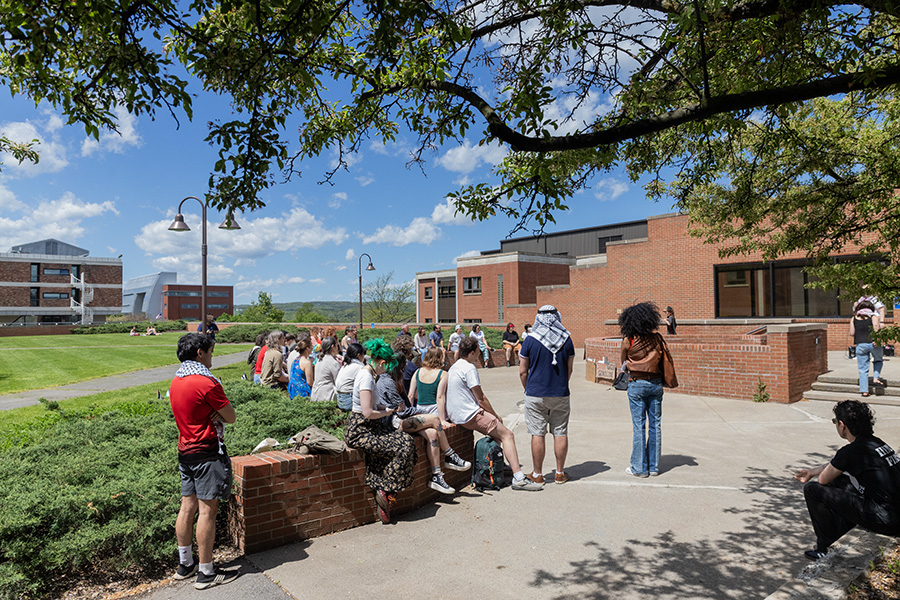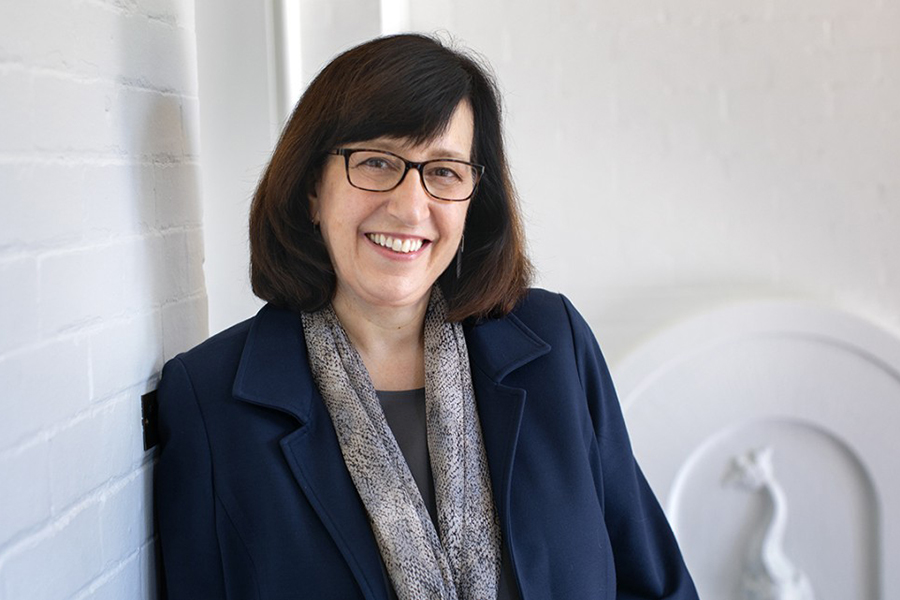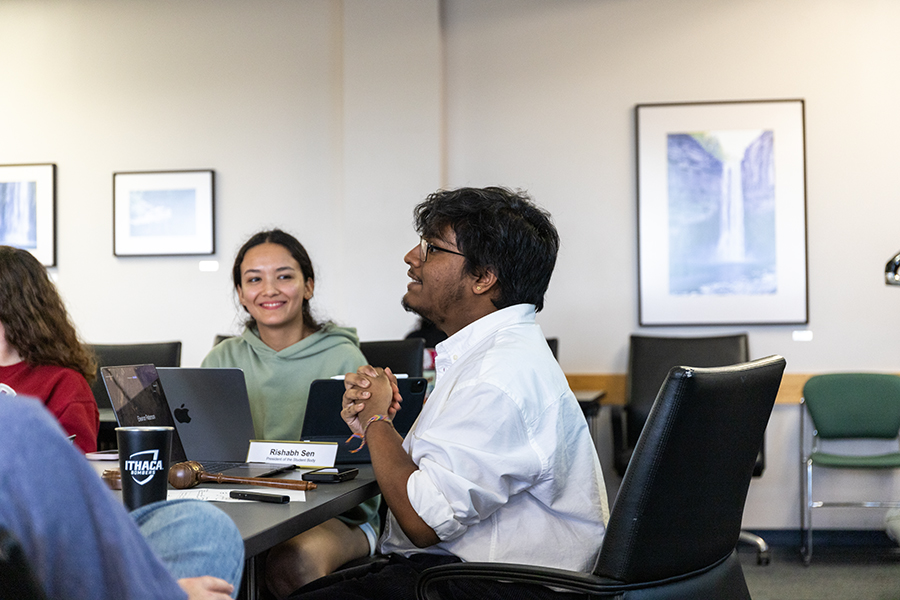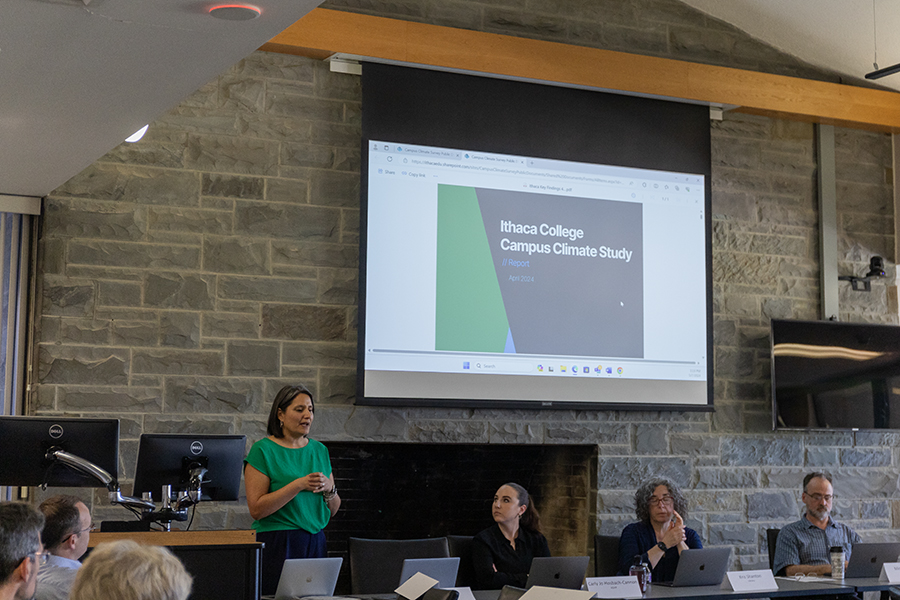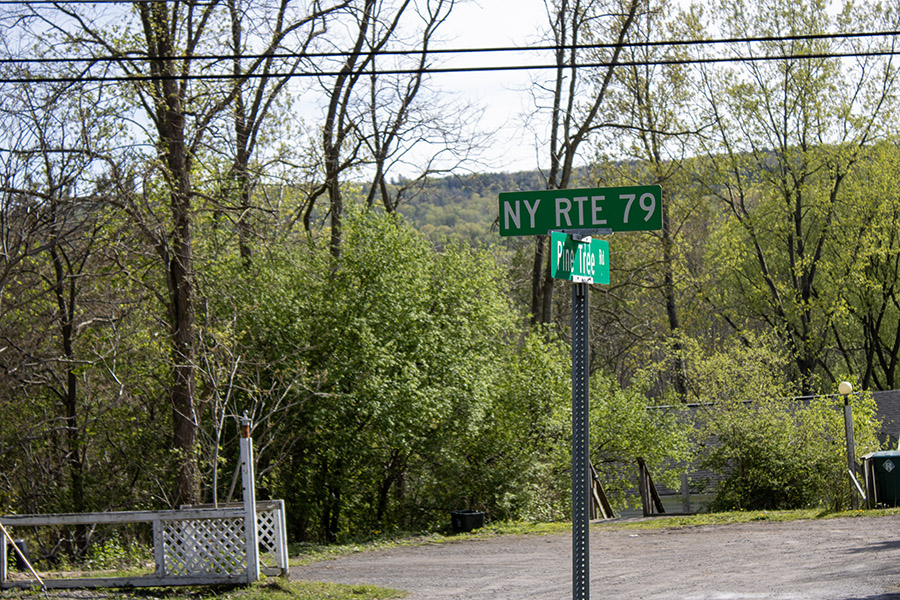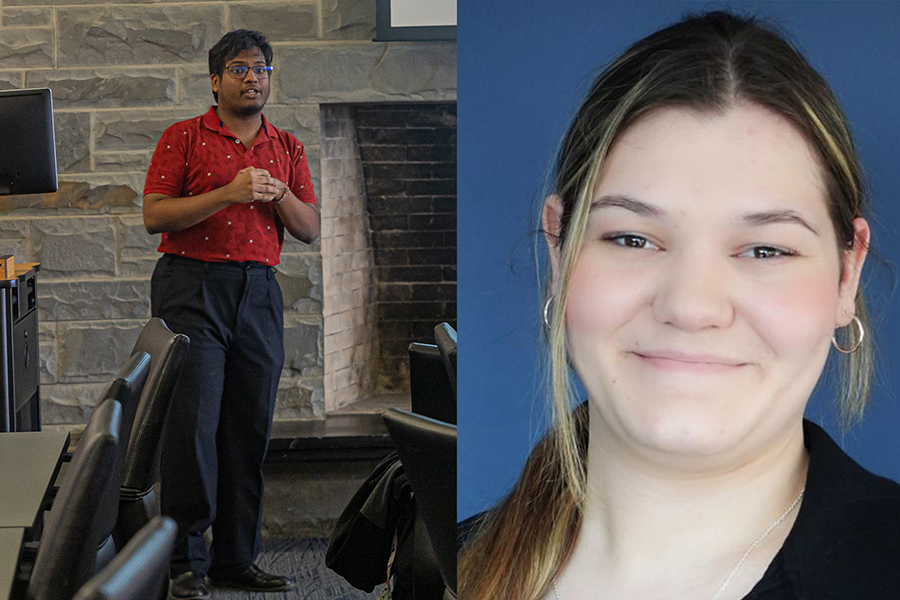David Tal, an author and expert on Middle Eastern military and diplomatic history, will give a presentation at 7:15 p.m. today in the Taughannock Falls Meeting Room. Tal’s lecture, titled “I am in the East, but My Heart is in the West”, will address the current state of Israel and the attitudes of the Israeli people.
Contributing Writer Jessica Grunenberg spoke with Tal about his work, the Arab-Israeli conflict and differences between Eastern and Western cultures.
Jessica Grunenberg: Can you explain the title of your lecture, “I am in the East, but My Heart is in the West”?
David Tal: The [idea is] to sum up the issues that are being discussed today in Israel and the identity of the state of Israel and of the Israelis. Israel is in the Middle East geographically, but many Israelis feel … [that] Israel does not belong to the Middle East and that Israel is not a typical Middle Eastern state. … What I’m trying to do is to question to what extent Israel today sees itself as a Western society [and] the growing tendency among Israelis to relate to their immediate environment and to consider the East as part of their heritage, of their identification and their place of reference.
JG: What would you consider the qualities of a typical Middle Eastern state? How do you see Israel as different from that?
DT: Israel is different because Israel sees itself as part of the western world, and the Israeli technology, culture, social structure, political regime and the Israeli economic system … are much more Western than they are Middle Eastern. The Middle East is not Western in the sense that its political system is unique to the Middle East. It is not a parliamentary liberal democracy the way you can find it in many places in the West. It is not a capitalist industrialized society, [like] Israel is. The main ingredients of the Israeli society and the Israeli economy and the Israeli political regime are Western, which is not the situation in most, if not in all, of the Middle Eastern states.
JG: What is the biggest difference between Israeli and American students?
DT: Well, I must admit the difference is less than you would think, and my assumption at the end of the day … is a student is a student. Israelis, for example, are supposed to know more about the Arab-Israeli conflict. They are supposed to know more about the history of Israel, and the most obvious difference is in the language [they speak]. … But other than that, in the heart of the thing, the difference is all kinds of environmental and cultural differences. The culture is different, but in essence, a student is a student is a student. The Israeli culture and society is much more open and far less formal than the American society. When it comes to trying to make the students work and understand the topic, I think the
differences are far less significant than in any other aspect.
JG: What types of responses do you generally receive from students? Are they aware of the current situation in Israel?
DT: There is a lot of interest in Israel in the sense of the Arab-Israeli conflict and what is going on today with Israel. People are also interested in issues relating to Israel society [and] … what issues are troubling the Israelis. … So the interest in the Israelis goes beyond interest in the Arab-Israeli conflict. We hear a lot about terrorism — it is always in the news. … People find it interesting to hear something about Israel that goes beyond the current events, the Arab-Israeli conflicts and terrorism.
JG: What specific things do you feel students want to know about Israeli society?
DT: This is exactly what I am going to talk about in my speech: the issues of identity and the issues of the social structures of Israel. … Part of it is the attempt made by the Israelis in the first and second decades of its existence to create a new Israel. A new Israel that would be a Western one and that led to a clash between the founders of Israel [and] those who immigrated to Israel after its establishment.
JG: What kind of stereotypes do you encounter that Americans have about the Middle East?
DT: I feel that [people] are very open and they are very ready to listen. I don’t really encounter people with the kinds of stereotypes portrayed in American movies. I feel that in academia students are much more aware [of] the complexity of life — they are much more aware [of] the fact that society is not one homogeneous component and that it is much more complicated.
JG: What do you hope students learn from your presentation?
DT: I hope that students understand the complexity of the state of Israel — the idea that Israel is not just the image of conflict portrayed currently in the media. What I would like to show is that Israelis are engaged in issues you can find in many places around the world, including the United States. The Israeli people are people,
after all.

